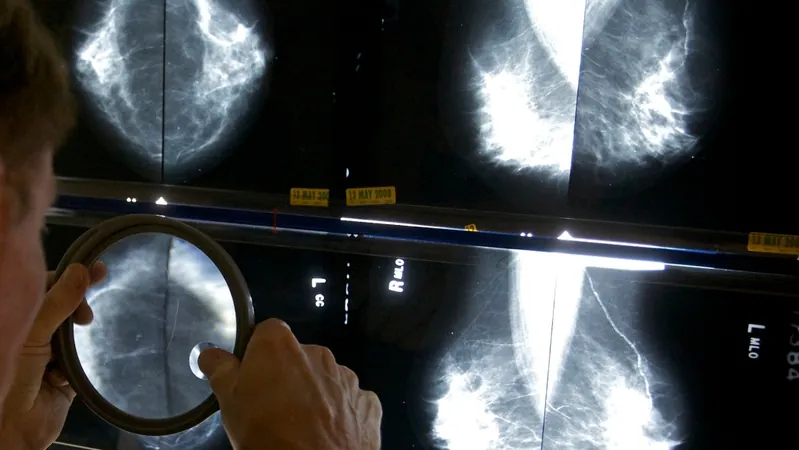
Revolutionary Studies Reveal Many Breast Cancer Patients May Ditch Surgeries
2024-12-12
Author: Jacob
In groundbreaking research presented at the San Antonio Breast Cancer Symposium, recent studies suggest that some early breast cancer patients may not require certain invasive surgeries, offering hope for reducing treatment burdens and enhancing quality of life.
Understanding Ductal Carcinoma In Situ (DCIS)
Every year, approximately 50,000 women in the United States receive a diagnosis of ductal carcinoma in situ (DCIS), a condition in which cancerous cells develop in the milk ducts, while surrounding breast tissue remains unaffected. Traditionally, many women opt for surgical intervention; however, the latest findings challenge this norm.
A significant study published in the New England Journal of Medicine tracked over 950 patients diagnosed with low-risk DCIS who were randomly assigned to either surgery or active monitoring. Active monitoring involves regular check-ups and mammograms without immediate surgical intervention. After two years, the results were promising: the incidence of invasive cancer was found to be similar across both groups, with 6% of the surgery group and 4% of the monitoring group being diagnosed. These results suggest that many women could forgo surgery without increasing their risk of cancer progression.
Dr. Virginia Kaklamani, an oncology expert, expressed optimism about the findings, stating, “For a long time, we’ve suspected that we may be overtreating patients with DCIS. This study supports that notion.” However, Dr. Monica Morrow of Memorial Sloan Kettering Cancer Center urged caution, noting that a two-year study might be too short to reach definitive conclusions.
A Patient's Perspective
Tina Clark, a 63-year-old from Buxton, Maine, was a participant in the study after her diagnosis in 2019. Assigned to the monitoring group, she avoided surgery during a challenging time when she was also caring for her sick husband. “I feel so grateful to have found this study at the right moment,” Clark shared. Her ongoing monitoring has shown no progression in her DCIS, illustrating the potential effectiveness of this conservative approach.
Reevaluating Lymph Node Procedures
Another critical part of breast cancer surgery often involves a procedure called sentinel lymph node biopsy, where lymph nodes from the armpit are removed for cancer assessment. However, this can lead to complications such as chronic pain or swelling. Encouragingly, a study conducted in Germany involving nearly 5,000 women suggests that lymph node removal may not be necessary for many patients undergoing breast-conserving surgery for early-stage breast cancer.
The German research indicated that after five years, survival rates remained high—about 92% for both those who had lymph nodes removed and those who did not. Dr. Morrow remarked, “The removal of lymph nodes does not enhance survival. Furthermore, the risk of cancer recurrence in the armpit is notably low when these nodes are preserved.”
Looking Ahead
As researchers continue to monitor the participants over the next decade, these studies could reshape treatment protocols for breast cancer, sparing many patients from the physical and emotional toll of unnecessary surgeries. For patients diagnosed with low-risk DCIS or early-stage breast cancer, these findings signify the possibility of alternative treatment avenues that emphasize surveillance rather than immediate surgical intervention.
This innovative research offers not only hope for current patients but also fosters a more personalized approach to treatment in the future, enabling women to make informed decisions about their health without the pressure of invasive procedures.









 Brasil (PT)
Brasil (PT)
 Canada (EN)
Canada (EN)
 Chile (ES)
Chile (ES)
 España (ES)
España (ES)
 France (FR)
France (FR)
 Hong Kong (EN)
Hong Kong (EN)
 Italia (IT)
Italia (IT)
 日本 (JA)
日本 (JA)
 Magyarország (HU)
Magyarország (HU)
 Norge (NO)
Norge (NO)
 Polska (PL)
Polska (PL)
 Schweiz (DE)
Schweiz (DE)
 Singapore (EN)
Singapore (EN)
 Sverige (SV)
Sverige (SV)
 Suomi (FI)
Suomi (FI)
 Türkiye (TR)
Türkiye (TR)